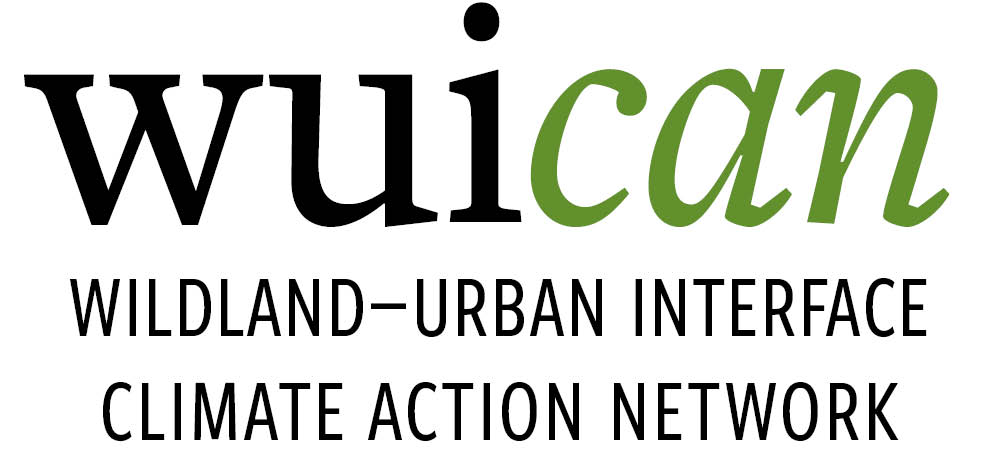
Jake Szabo
February 3, 2025
Once extending from the Pacific Ocean to the Imperial Valley of Colorado, the Kumeyaay have inhabited the San Diego region for over 10,000 years. Supplementing the work of researchers at UC San Diego, their complex environmental management techniques increasingly play a role in Californian climate research. Today, their knowledge of fuel management influences the research that Karagan Smith, a UCSD PhD student, conducts at the Cleland Lab, a partner of the Wildland-Urban Interface Climate Action Network (WUICAN).
Smith’s earliest experiences with climate injustice originate from her Arapahoe ancestry. The Tribe was “sent to Oklahoma to a completely new climate and terrain, following the devastating Sand Creek Massacre of 1864,” says Smith. Through her research at the Cleland Lab and interactions with the Kumeyaay, she connects the injustices the Arapahoe experienced to the modern struggles faced by Tribal and marginalized communities due to climate change.

Fire management, invasive species and climate change
Smith’s interest in climate research was initially driven by her undergraduate experiences at Pepperdine University. The natural landscape around Pepperdine was scorched by the Woolsey Fire in 2018 while she was working in a plant ecology lab. “I became super interested in how our native plant communities respond to fire,” she says. Her graduate research focuses on a similar burn to the one she witnessed at Pepperdine, investigating how sagebrush ecosystems respond to fire and drought conditions.
While her research is not concluded, Smith finds that the dynamics of the ecosystem and climate can drive conditions of fires and recovery. For example, a fire’s temperature affects the recovery of ecosystems and is itself a product of the type of vegetation present. In areas that burn at a higher temperature, there is less invasion of the yellow mustard plant post-fire, while moderately burned areas see a higher level of invasion. Larger sagebrush plants require an intense, “super hot and severe” fire in order to return to an ecosystem, while lower-temperature fires can be driven by small invasive species that act as kindling. This may cause fires that burn “really fast and are hard to control, but their temperature is low,” Smith says. “If you add drought on top of that, that’s going to kill a lot of shrub seedlings,” putting sagebrush ecosystems at risk.
These “unnatural, really big, but cool temperature burns” will be hard to contain, threatening structures and spreading across more land while damaging the recovery of native shrub species. Although some of her research conclusions are concerning, Smith reports some optimistic findings. “Once shrubs come back post-fire, we see that they have a pretty high survival rate,” she says.
Involving community through research
Smith’s research would not be possible without the aid of her community partners. Working with Palomar Community College, her research has utilized remote sensing data collected on the burn area she is studying using drones piloted by students trained through the school’s program.
Native groups also aid the research that Smith conducts, giving her the opportunity to learn about their historical practices and the ecological history of California. The Kumeyaay Tribe works with the Climate Science Alliance, the main partner of the Cleland Lab. The Climate Science Alliance is a recipient of a Collaborative of Native Nations for Climate Transformation and Stewardship (CNNCTS) grant, awarded by the University of California. As part of the California Climate Action Seed and Matching Grants, the same program that funds WUICAN, the project aims to integrate the stewardship practices of Indigenous groups into climate research at various universities.
Smith reflects how the information Native groups have contributed to academic research has shifted our knowledge of the historical fire regime of California. Historically, “scientific publications” have described the main pattern of wildfires as being caused by lightning strikes. To Smith, “what’s been left out is that the native communities would tend to the land using fire to cut down dense sagebrush.” For thousands of years, the Kumeyaay utilized controlled burns “that would shape the landscape and maximize the area, keeping everything biodiverse and allowing native species to thrive,” says Smith.

Smith is helping restore sagebrush used by the Kumeyaay for basket weaving, boat creation and ceremonial practices in the Kendall-Frost Marsh Reserve, a recently-opened part of the UC Natural Reserve System. An event organized by the Climate Science Alliance invited people from UCSD, Kumeyaay Community College and other institutions working with the Kumeyaay to restore black and white sage. Smith got to learn about the craft of basket weaving, clay bowl making and the Kumeyaay creation story—all while participating in “really interesting restoration science.” She learned “how important plants are to Kumeyaay culture and to their belief system,” forming the basis of their management of sagebrush ecosystems.
WUICAN and the Climate Science Alliance have influenced Smith’s initiative to conduct community-involved research. “Working with community groups is critical for scientists,” she says. For Smith, climate research is “not just about publishing the best paper,” but figuring out “how the work that I’m doing affects people and communities.”
Jake Szabo is a senior English major at the University of California, Irvine. He is a 2024-2025 WUICAN Climate Communications Fellow with the University of California Humanities Research Institute (UCHRI).
WUICAN acknowledges our presence on the ancestral and unceded territory of the Acjachemen and Tongva Peoples, who still hold strong cultural, spiritual and physical ties to this region.
Contact:
Research Justice Shop
researchjustice@uci.edu
Join the WUICAN mailing list


Follow us